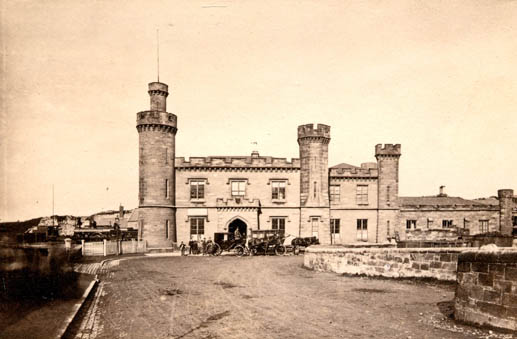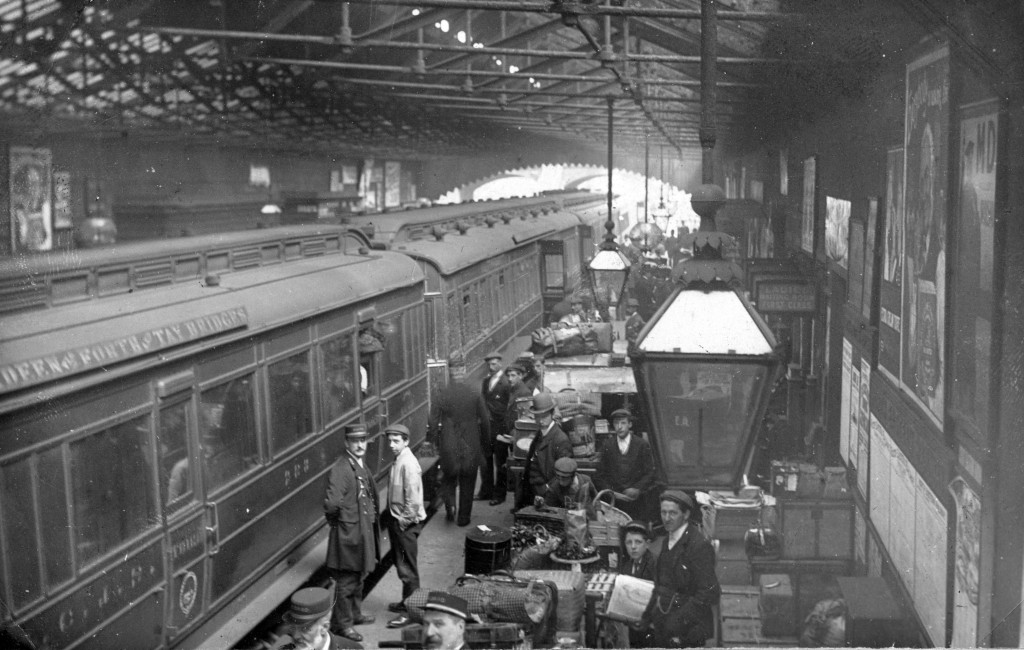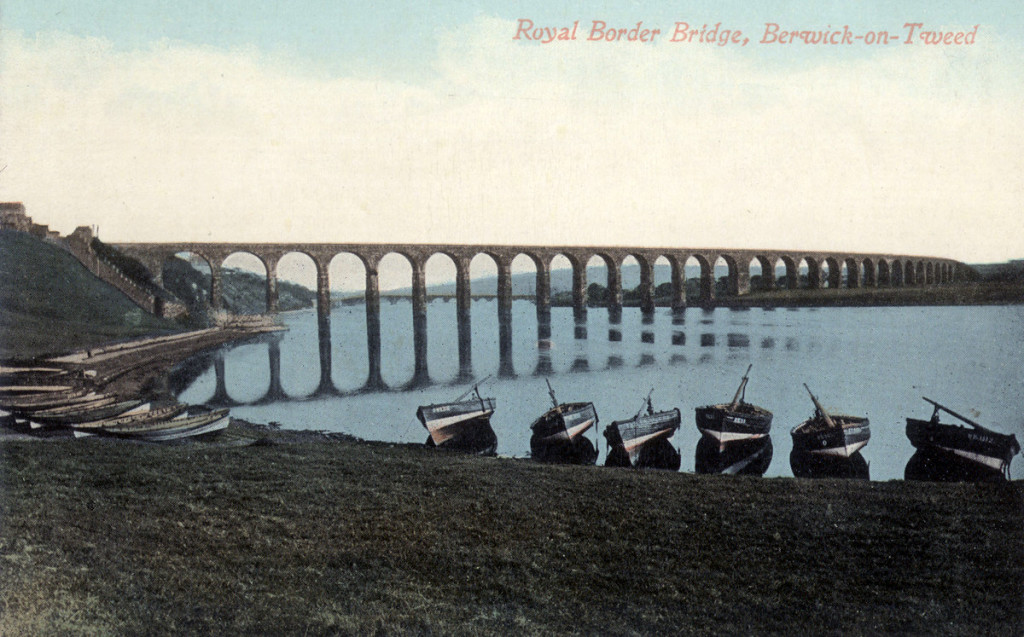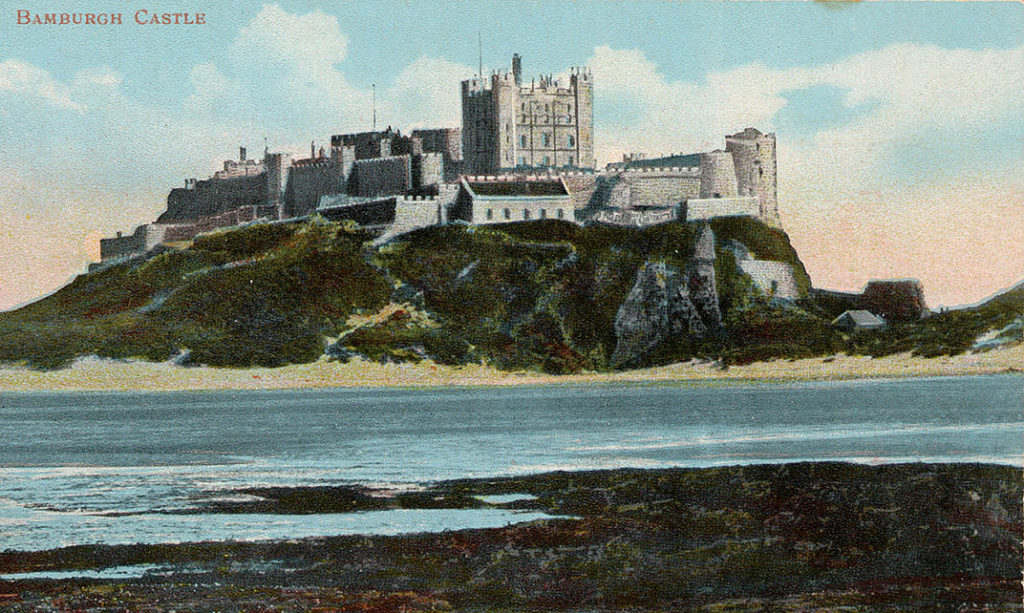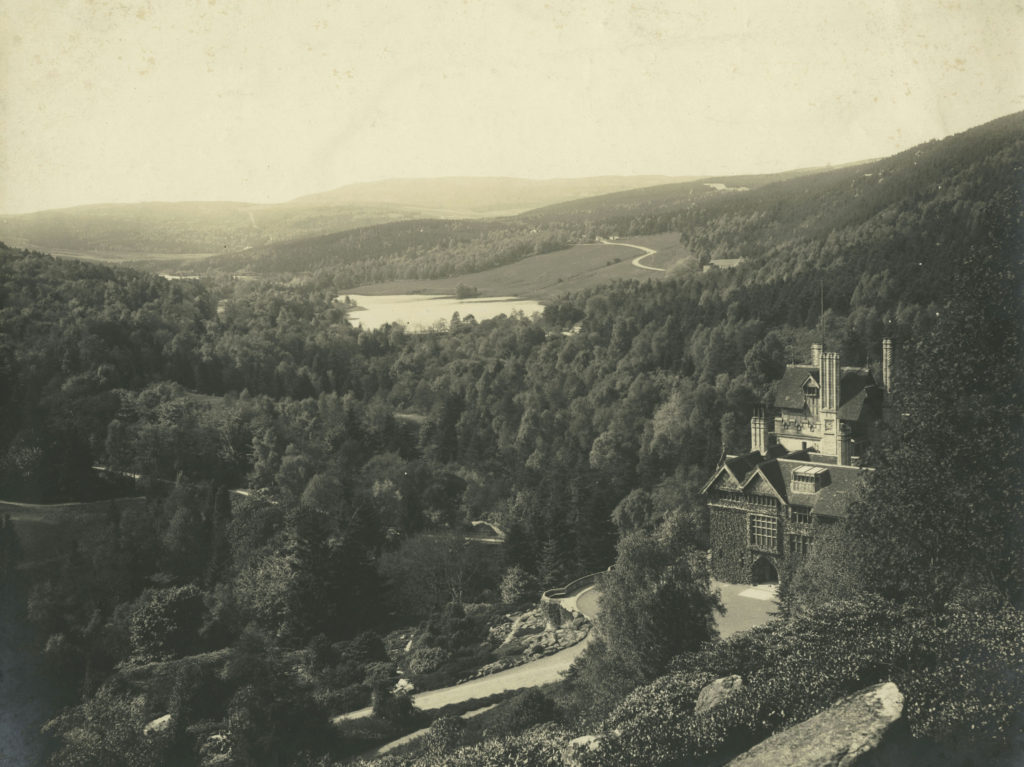BERWICK ADVERTISER, 3RD APRIL 1924
BERWICK NEW STATION
(FROM THE BERWICK DEBATING SOCIETY MAGAZINE)
Much ink has been spilt and hot air wasted over the necessity of having a new bridge over the river Tweed at Berwick, and while all are agreed that this proposal is of vital importance to the future development of the town, many differences of opinion are noted as to the location of the structure. The many expressions of interest in the scheme from all sections of the community is indeed gratifying and angers well for the future of the borough. This, however, regrettable that during all the discussions on the future welfare of the town, little or no comment has been made on the proposed new Railway Station at Berwick.
Rightly or wrongly, a traveller arriving at a town on his first visit, sizes up the importance of that town at the moment he steps off the train. It is, therefore, most essential that this ancient and prosperous Border town should have a railway station fitting the importance of the locality served. It will be agreed that the necessity of having a modern station at Berwick has been apparent for many years past. The low, dark platforms of inadequate length for modern through East Coast trains, the ill-lit waiting rooms and other conveniences, the acute curves whereby passenger trains entering the station from either direction are compelled to travel at a greatly reduced speed, and the “back street” entrance to the present structure do not give the town the status it deserves. The proposed alterations, is gratifying to note, will dispense with many of these very serios disabilities. Platforms are to be lengthened, extra waiting rooms introduced, and the acute curves minimised to such an extent that non-stopping trains will be able to pass Berwick at a much greater speed. No notice, however, appears to have been taken of the present station entrance, and no proposals have apparently been made whereby the new station will have the imposing main street entrance so essential to a railway station of first-class importance. Those of us who have visited Alnwick cannot fail to have noted the splendid railway station at that town. No necessity to enquire the way to the station at Alnwick, and no unsightly hoardings reminding us that “Boxo” puts a man on his feet, and that “Crushem” salts makes grandad an athlete of no mean ability. It is, of course, agreed that the proposals of the Railway Company are admirable so far as utility in railway working is concerned. Local trains will, it is understood, be started from a suitable platform for that class of train, thereby obviating the present method whereby passengers for different trains are frequently seen threading their way along narrow platforms among innumerable fish and luggage barrows.
Utility, however, from the viewpoint of the Railway Company is quite a different matter to the utility of the residents of the town served by the railway station. Representation should be made urging the necessity of having an entrance to the new station direct from the top of Castlegate. The plan obtaining at the present moment appears to be, a front street entrance to cattle docks, and a back passage entrance for the passengers. This order of things should, of course, be reversed in the new station. Another sore point to the artistic eye at Berwick Station is the disorderly array of shacks and huts of all descriptions which, in many cases, obstruct what would be one of the most beautiful views in this country. Some months ago, the writer was in conversation with a gentleman who had arrived at Berwick Station from the South at 4am on a beautiful summer morning. Glancing westwards from the train in crossing the Royal Border Bridge the sight that met his eye was the most gorgeous it was possible to imagine, and it was made clear from the traveller’s remarks and in all his travels which, by the way, extended to many countries, he had never experienced the thrill which he experienced on glancing up the silvery Tweed that morning. Now, Mr Editor, except from passing trains, how many of us have been privileged to view this most wonderful landscape. The placid silvery Tweed at high-tide, the surrounding country one mass of colour, away in the West can be seen the Eildon Hills and Hume Castle, while to the South, Cheviot and Hedgehope Mountains stand grim and forbidding. All this grandeur is. However, unfortunately obscured to the visitors at Berwick Station by an array of shacks built near the end of the Royal Border Bridge. In the building of the new station, it would be gratifying to know that these unsightly little buildings were to be removed with a view of leaving an unobstructed view of the river Tweed and surrounding country from the end of the platforms.
Another anomaly in the present arrangements is the system whereby the exit from the goods warehouse and coal sidings also serves as the ordinary passenger exit from the station to the town, but this would, of course, be obviated if the Castlegate entrance were adopted.
Another very urgent reform necessary in the building of the new station at Berwick is the necessity of affording sufficient room for the standage of cars and taxis at the station entrance. At present the cars are obliged to line up any old how as near to the station portico as circumstances will permit, with the result that the turning of a car or taxi while foot passengers are passing to and from the station is a hair-raising thrill for the spectators who view the feat from a safe point of vantage. This, Mr Editor, is an antiquated and obsolete arrangement, suitable no doubt for ancient horse-drawn vehicles, but quite up safe for the present means of road transport using the railway station premises. In the new station we should therefore insist that the entrance from the town be made sufficiently wide to accommodate the large number of vehicles which meet all the East Coast express trains. Another item of importance, although not directly connected with the actual structure of the station, is the complete absence of a Sunday passenger train from Berwick to stations North. Can you name another town of equal importance so served, Mr Editor? Surely if towns like Kelso, Alnwick, and Hexham are worthy of a Sunday service, then, in an even greater degree, must out town need a service.
Another matter the visitor to our railway station must surely notice is the absence of train destination indicator boards on the platforms. The system adopted at Berwick, of lusty-lunged individuals bawling the destination or next stop of the train is, to say the least, reminiscent of the small wayside stations, and misleading when more than one train occupies the platforms.
I hold that the inhabitants of Berwick, who are justly proud of their town, should have a say in the very important work that is about to be undertaken at Berwick Station. Let us make it clear that any make-shift will not meet with our approval, and that our ancient town, which is one of the most famous on the great East Coast route, is well worthy of a railway station harmonising with the natural grandeur of the famous Borders.


